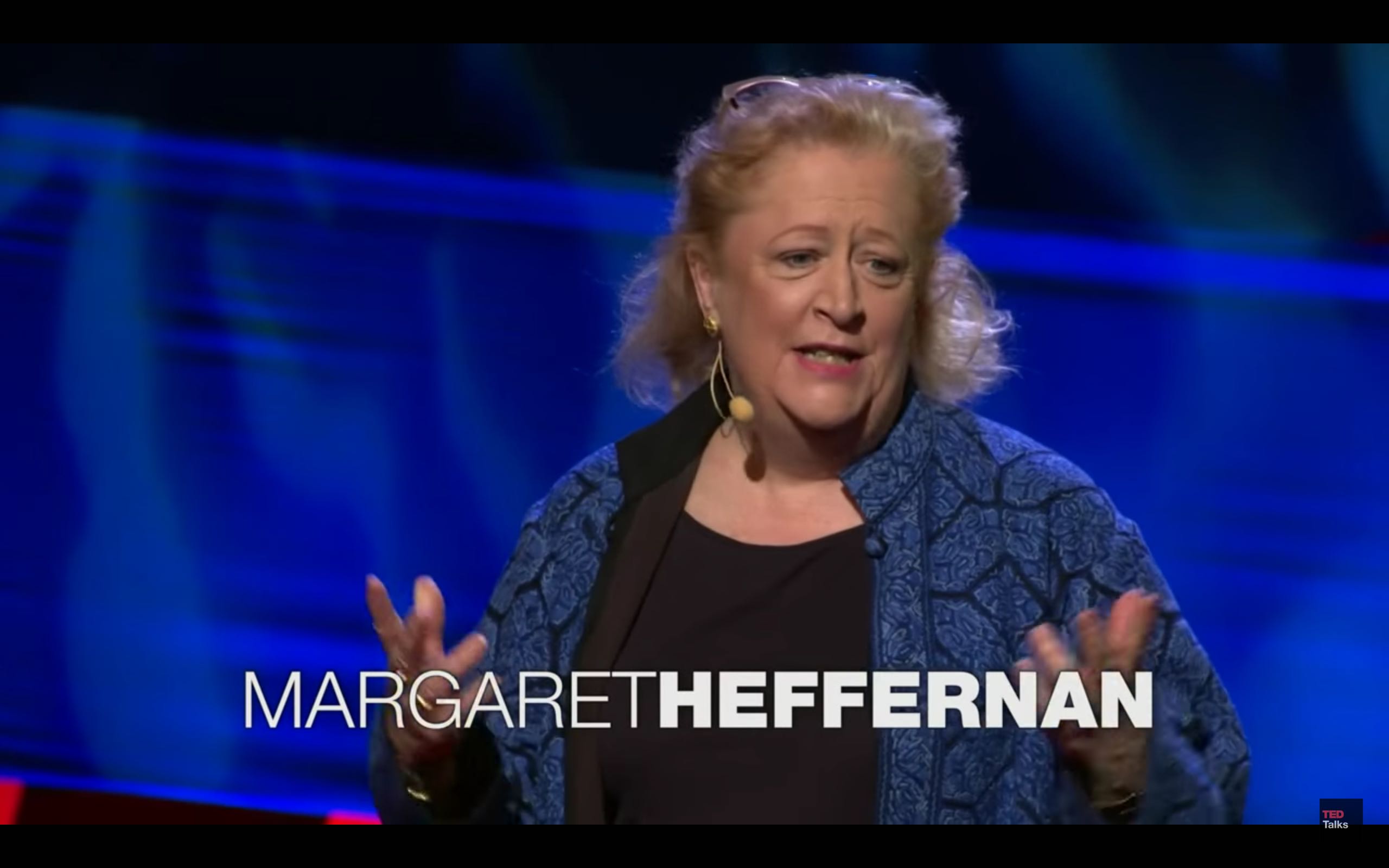
4 min read
We’re fortunate at Reward Gateway to have been inspired and led by some incredible thinkers in employee engagement, company culture, and leadership. Our new series, “Lighting the Spark,” features one of these amazing thinkers every month. In our first post, we are sharing the wonderful Margaret Heffernan.
Margaret Heffernan is a five-time CEO and author, exploring the aspects of human nature that ensure success and/or failure. Her book Beyond Measure has had a huge impact on us here and you’ll find copies of it in every one of our 7 offices around the world. (Reward Gateway clients can even request one for free from their engagement managers!).
Your people are essential to your success. We know that, and you wouldn’t be reading this if you didn’t think that. But most often we think of employee engagement as something the company does to or with its people and we think of recognition programs, culture programs and leadership communication programs — all things that Reward Gateway helps our clients with.
But one aspect that we maybe think less of, is the engagement between people in an organisation—the quality of the relationships between peers.
 That’s something we’ve been thinking a lot about since we met Margaret through her work. Margaret talks about building “social capital” helping and enabling the bonds between colleagues that oil the wheels of your organizational machine. Margaret talks about social capital being like the mortar between the bricks - essential to making an organization work. That’s the point that Margaret is making, or the one that resonates best with us, and as an employer you have a role and ability—and a responsibility—to encourage and enable the building of social capital.
That’s something we’ve been thinking a lot about since we met Margaret through her work. Margaret talks about building “social capital” helping and enabling the bonds between colleagues that oil the wheels of your organizational machine. Margaret talks about social capital being like the mortar between the bricks - essential to making an organization work. That’s the point that Margaret is making, or the one that resonates best with us, and as an employer you have a role and ability—and a responsibility—to encourage and enable the building of social capital.
“Social capital is the reliance and interdependency that builds trust… Social capital is what gives company momentum and social capital is what makes companies robust. What does this mean in practical terms? It means that time is everything. Social capital compounds with time.”
As she says, “What matters is the mortar, not just the bricks.” The social capital and the connections that exist between people are what will ensure success, not the star capital of those people.
Talent isn’t what most important; it’s your team’s ability to work together that is, and that starts with connection. It’s not that people will be thinking that they don’t like you and therefore don’t want to help you, but if they don’t know you and have the connection, they will not be as invested in listening and helping.

If you’ve ever set up a new office, you may be familiar with this (those are our colleagues at our London office sendoff, above). When you first start out with a new team in a new office, you have to encourage and enable the team to build bonds with each other and with the company in other offices. That may be something as simple as encouraging the use of video calls or visits to other offices, sending funny emojis and stickers via chats, or throwing a BBQ for some non-work fun to help foster friendships and bonds (as we did recently in our still fairly new Boston office). Sending an eCard to a colleague shows you are thinking of them and that you care, and it only takes a minute.
When you create an environment where co-workers are more than just that, the workplace becomes more than just a place to show up, do your work, and get paid. Everyone works together because everyone’s success is interconnected. They’re willing to challenge and help each other because they’re than just neighbors during the day.
“Social capital isn’t about chumminess. It doesn’t mean work colleagues have to become best pals or that good cheer is a permanent requirement. Many of the greatest teams are scratchy, sharing an impatience with anything less than the best.” - Heffernan
We must continue to work hard, but now we must focus on working hard together. The person sitting next to you may not be in the same department, but they may have an idea about the project you are working on that is invaluable, and the only way you can know that is with constant connection and communication.
Want to know more?
For you video-viewers out there we recommend her TED Talk, “Why it’s time to forget pecking order at work,” which covers team success and social capital, the social capital bit starting at the 06:28 mark. (If you’re not a video lover, we’ve also put together the full transcript for your viewing.)
Next month, we’ll be featuring Simon Sinek. So go on. Share this article with others you think might be helped, Chat about it. Make a connection. Light the spark.

 Glenn Elliott
Glenn Elliott



